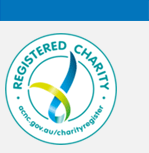Author Credentials
Author names
Dr Edlin Glane Mathias a, Dr Mamatha Shivananda Pai a, Dr Vijay Kumar b, Dr Vasudeva Guddattu c, Dr Ann-Cathrine Bramhagen d
Affiliations
PhD, Department of Child Health Nursing, Manipal College of Nursing, Manipal Academy of Higher Education (MAHE), Manipal, Indiaa
PhD, Professor, Department of Child Health Nursing, Manipal College of Nursing, Manipal Academy of Higher Education (MAHE), Manipal, India a
Professor & Head, Department of Paediatric surgery, Kasturba Medical College, Manipal Academy of Higher Education (MAHE), Manipal, Karnataka, India b
Associate Professor, Department of Data Science, Prasanna School of Public Health, Manipal Academy of Higher Education (MAHE), Manipal, Karnataka, India c
PhD, Associate Professor, Department of Care Science, Faculty of Health and Society, Malmo University, Sweden d
Abstract
Aim: This study aimed to investigate mothers’ levels of satisfaction with distraction as a post-operative pain management intervention for their child.
Background: Although the number of studies on paediatric pain management has increased over time, research into non-pharmacological post-operative pain management remains inadequate, indicating that more research is required.
Design: A posttest-only control group design was adopted to measure mothers’ levels of satisfaction with distraction as a non-pharmacological post-operative pain management intervention for their child.
Methods: The study included 160 mothers and their children undergoing elective surgery in a paediatric surgical unit. Mothers and children were randomly allocated to intervention and control groups (80 intervention, 80 control). The children in the intervention group received age-appropriate distraction interventions for three post-operative days along with the usual care. Children in the control group received only usual care. Data on parental satisfaction with pain management interventions was assessed on the day of discharge using a parental satisfaction questionnaire.
Results: In the intervention group 48 mothers (60%) were ‘very satisfied’ and 22 mothers (40%) were ‘moderately satisfied’ with pain management interventions for their child. In the control group 27 mothers (34%) were ‘very satisfied’ and 53 (66%) were ‘moderately satisfied. The mean and standard deviation of mother’s satisfaction in the intervention group and control group was 42 ±5.23 and 34 ± 6.64 respectively. The present study identified that there was a significant difference in the level of mother’s satisfaction between the intervention and control groups (p<.05).
Conclusion: The level of satisfaction with pain management intervention for their child was higher for mothers in the intervention group that the control group. The distraction intervention provided for the children during the postoperative period improved the mothers’ satisfaction level.
Recommended Citation
Mathias, Edlin Glane; Pai, Mamatha Shivananda; Kumar, Vijay; Guddattu, Vasudeva; and Bramhagen, Ann-Cathrine
(2022)
"Mothers’ satisfaction with distraction as a postoperative pain management intervention for their child: An interventional study,"
Journal of Perioperative Nursing: Vol. 35
:
Iss.
4
, Article 2.
Available at: https://doi.org/10.26550/2209-1092.1206
Creative Commons License

This work is licensed under a Creative Commons Attribution 4.0 License.
Included in
Other Medicine and Health Sciences Commons, Perioperative, Operating Room and Surgical Nursing Commons


